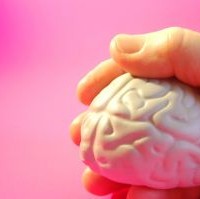“Memory and imagination, as Vico says in the New Science, are closely connected to ingenuity (in Italian, ingegno; in Latin, ingenium) as the power to form hypotheses in science and metaphors in the arts, to perceive the similarity in dissimilars. Ingenuity, like metaphor, its product, cannot be learned from others as an adult. The mind must be led to it at the earliest age. Ingenuity is not method. There is no method for ingenuity because method is rigidified ingenuity. Once ingenuity leads us to a discovery, the means of the discovery can be articulated and formulated as a method to then be followed. Descartes’ method is not a product of method. It is a product of his own ingenuity that then can be apprehended by everyone with bon sens, adapted, and followed.
“Vico would look on in horror at the current basing of the earliest years of children’s education on mastery of the computer and electronic-based activity. Students whose sole object of concentration is thus directed will, as adults, have no ability to tell a story, certainly not a good story, nor to narrate their existence to themselves. In such education, wonder (thauma), in which philosophy originates and continues to require, as Aristotle says, will never appear because the pupil never stands before things pure and simple, unaided by the medium which is itself the message. As Gianturco says, in beginning his introduction to the translation of the Study Methods: ‘We live in a Cartesian world, a world of scientific research, technology, and gadgets, which invade and condition our lives . . . .’ In such a world, education in social management and counseling replaces education in civil wisdom.”
Donald Verene, “Vichean Moral Philosophy: Prudence as Jurisprudence,” Kent-Chicago Law Review, 83:3 (2008), 1114.





1 comment
Jim Dooley
There is,however,reason for hope: human perversity, chance, and coincidence will never allow us to become the complete drones our benevolent keepers would have us. We have been given our middle fingers for more profound reasons than operating a keyboard.
Comments are closed.